Recession, rising poverty and austerity measures are putting pressure on Argentina's middle class and poor. Almost 11 percent of Argentines are jobless. The peso continues to nosedive and the International Monetary Fund estimates inflation will be around 57 percent this year.
On September of this year, INDEC reported Argentina's poverty rate rose to 35.4 percent. This new data shows that 3.25 million people have slipped into poverty over the last 12 months, with the figure rising 8.1 percentage points in just a year. Those said to be living in extreme poverty – i.e. those who cannot meet their minimum needs – has increased from 6.7 percent to 7.7 percent over the last six months. One year ago, the figure stood at just 4.9 percent.
Increased poverty rates have not only upped the number of those living on the streets, but also made it harder for basic nutritional goods to be acquired by those struggling.
In early September, before the official INDEC percentages were released, Peronist factions within the Frente a Todos party pushed for the declaration of a national nutritional emergency. The issue reached to such tensions that it prompted presidential candidates Mauricio Macri and Alberto Fernández to release project proposals addressing Argentine's ability to purchase food goods.
Argentines caught in the middle of the nation's economic crisis tell their stories.
Macarena Contreras
Contreras, 31, lost her job as a nanny two years ago, and her children, all between the ages of three and eight, live with her mother. She said she hasn’t been able to find a new job because people are cutting back their expenses, and that she started sleeping under a bridge after she and her partner broke up. "We're in a war where Argentines are fighting against Argentines," she says, feeling there is a lack of solidarity with people like her and paranoia that the poor are thieves. "The street is not a life for anyone.”
Luciano Carpigniano
The 37-year-old lost his job at a Buenos Aires appliance store one year ago, and says rising inflation has made him seriously consider starting his own business, so as not to depend on an employer, or move to Spain. “Here the economy changes your reality in a few days,” he said. He doesn’t think any of the presidential candidates can change that.

Camila and Sofia
Workers Camila Di Cesare, right, and Sofia Gonzalez were given 10 days notice from their employer, a closing shop, that the shop is set to close. It's located on one of the capital's busiest streets. Camila, a 27-year-old single mother, says she uses 80 percent of her wages to pay for her one-year-old’s daycare so she can work. “And then out of nowhere being left without a job,” says Di Cesare, who wants to leave Argentina and escape its troubles within two years because “I don’t think this is ever going to change.”
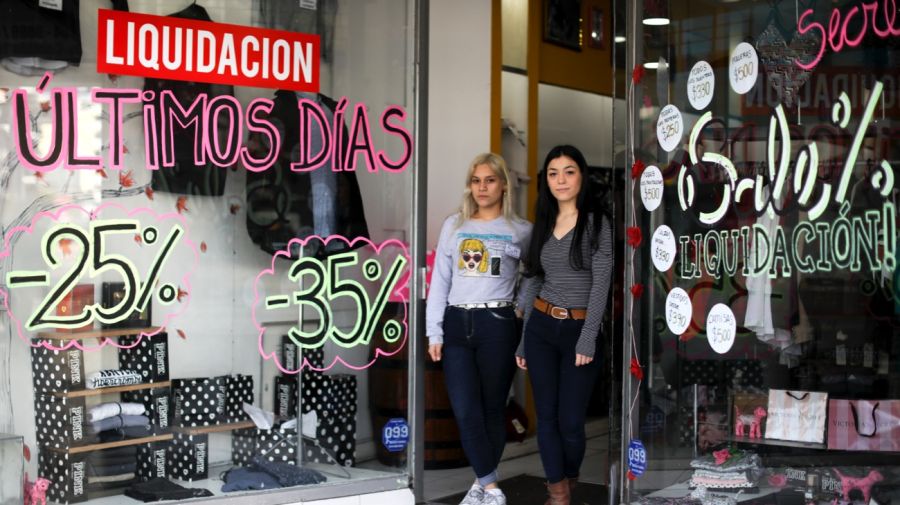
Zulma Perez
Perez recycles trash and survives on about US$160 dollars a month. No longer able to afford rent, the 61-year-old moved from the town of Salta into this shack where the streets are muddy when it rains. Unable to afford gas, Perez's family of four cooks with firewood. She and her husband hope the government give them and their neighbors the title to the plot they're living on, and that services like sewage and paved roads are built. Thanks to donations by cardiologists, Perez is able to take the heart medicine she needs.
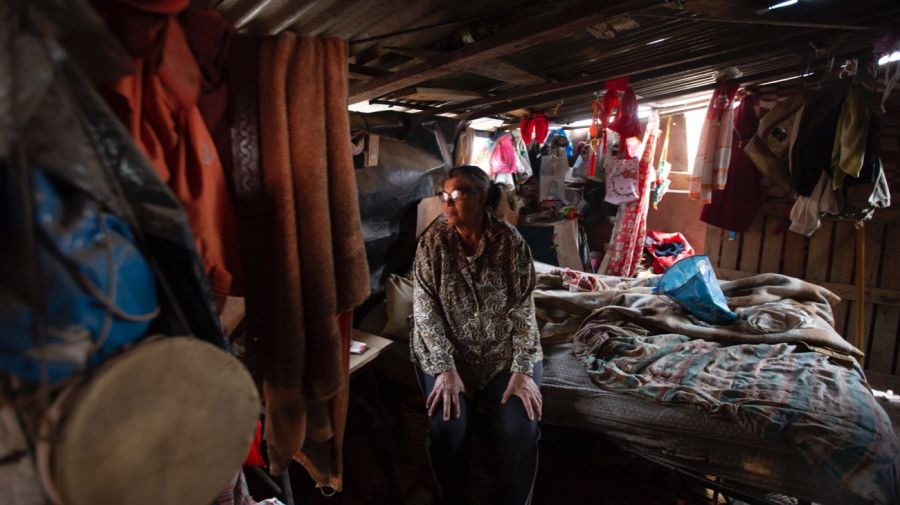
Victoria Canetes
Canetes is still owed wages from her former employer, a candy store where she worked for 20 years. It was taken earlier this year over by some of its workers when its owner abandoned it after being in operation 47 years. Canetes and other workers say the owner still owes them back wages, but the mother of a teenager feels positive about the factory's future. Known for producing one of Argentina's most famous candies, called "Mielcitas," the business is being turned into a co-op, owned by its workers. She doesn't earn a salary yet, so the family of three lives on her husband's restaurant wages.
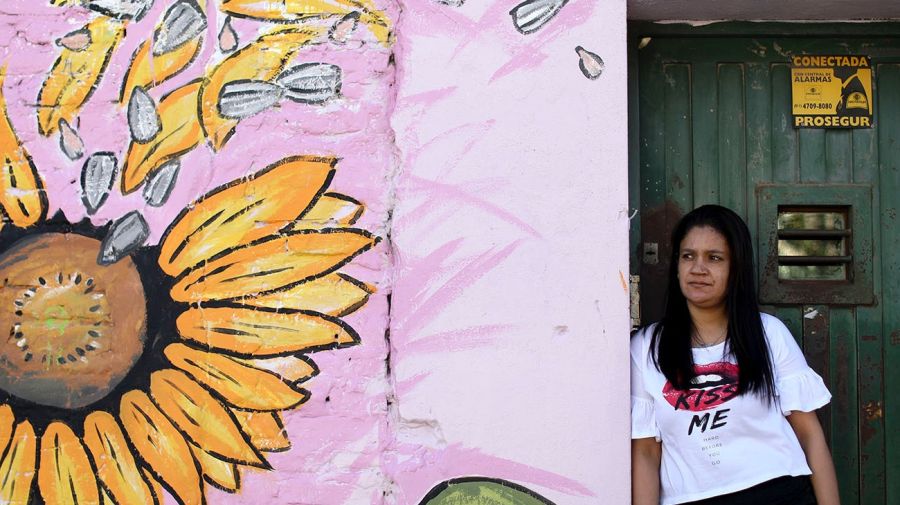
Mari Roldan
Roldan closed her apparel shop six months ago; today she can be found in a park trying to sell or even barter her store's unsold garments. The little money she gets cannot pay for her husband's cancer treatment, as well as their food and living expenses. "It's humiliating to be here," Roldan says of her endeavors in the park.
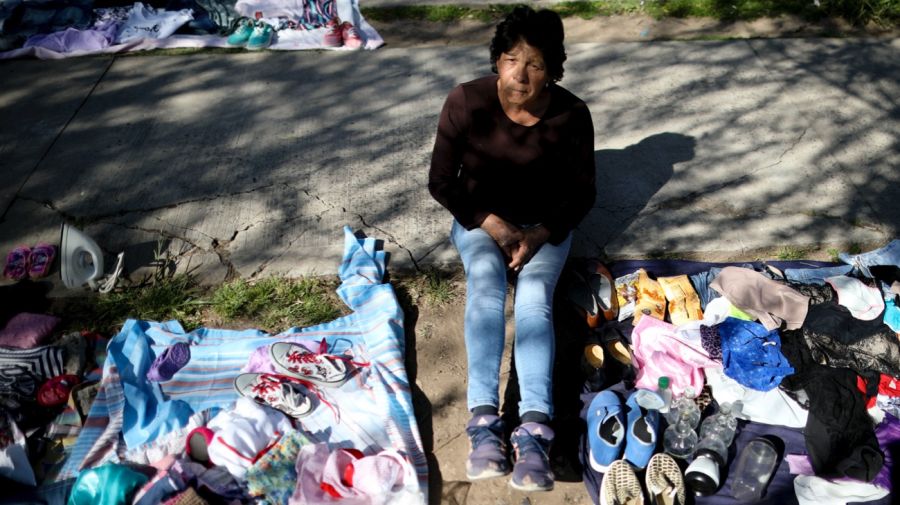
Vanesa Rivarola
Three years ago, the 40-year-old left her job at a shoe manufacturer to take care of her children and sick mother, unable to afford to pay someone to look after them. Today, her contacts have turned into a large online group who barter clothing for food among themselves. "The poor help the poor, because those on top, forget it," Rivarola says. "Those on top don't see it."
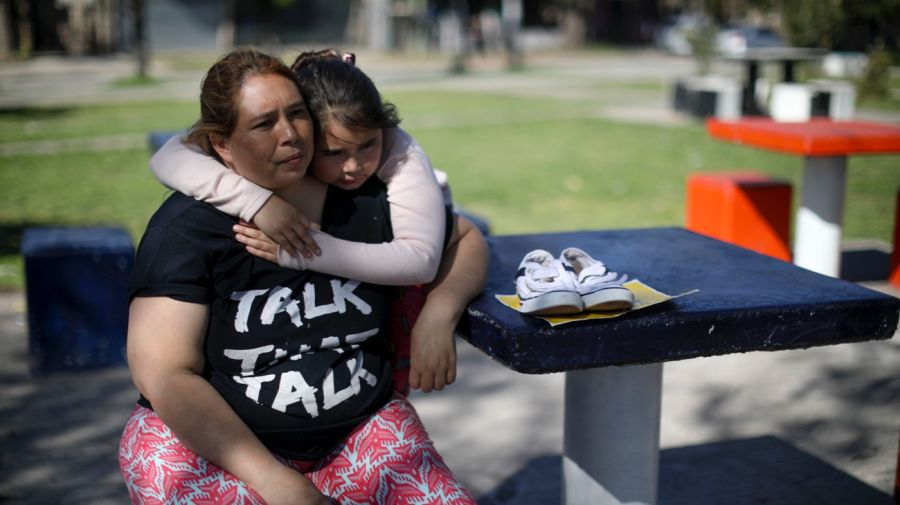
Claudio Sosa
The unemployed construction worker moved out of his mother's home and made a tiny shack of wooden pallets, plastic tarps and bricks he found in the street. The 29-year-old gets his new clothes from the landfill where he scavenges for items to recycle for money, pulling in about US$60 dollars a month. While he hasn't found a job in construction, Sosa said he’ll continue searching the landfill for items like cardboard and plastic to sell by weight.
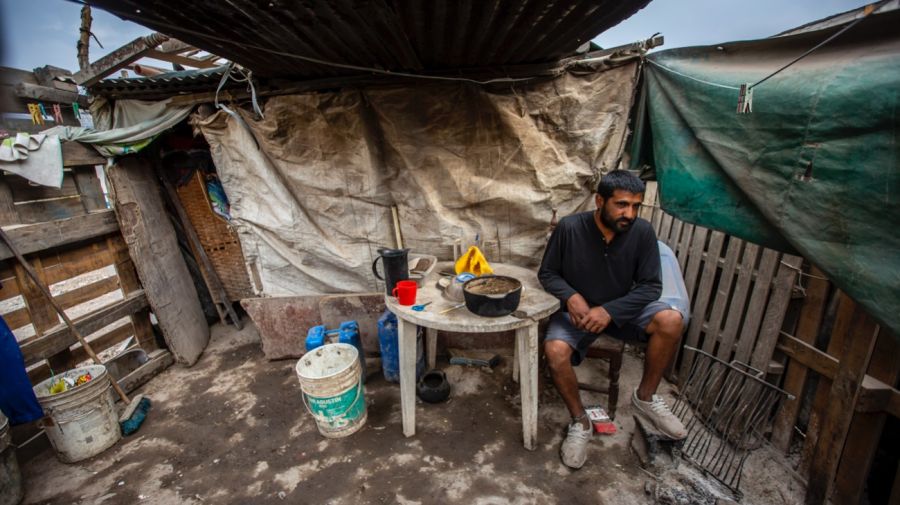
Carlos Araya
Araya's family of eight share one bed and use firewood to cook. Just four years ago his family’s reality was more optimistic. The 62-year-old was able to support his wife and children as a painter and gardener, even making payments on a land where he started building a home. But in 2017 the economy tanked, and he lost his partial investment and the dream of climbing out of poverty. Instead he built this shack where they live now. His children are assured one meal at school and when at home the family is limited to rice and potatoes. Now handicapped from a tobacco related work injury, Carlos and his family barely survive on his wife’s cosmetic sales and her disability pension.
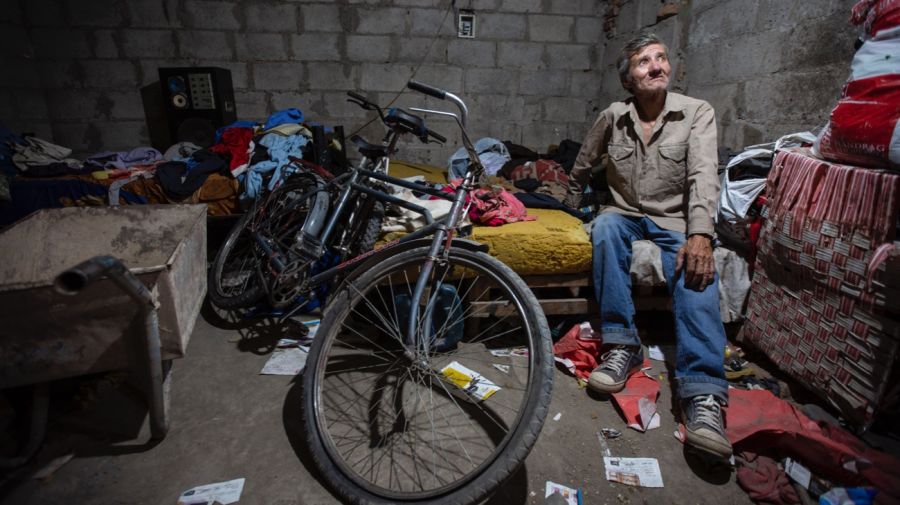
Carlos Sequeira
Sequeira has spent the past 30 years working as a waiter at the Plaza Dorrego bar, an icon of Buenos Aires for more than 140 years. When his employer stopped paying salaries on October 1 and abandoned the property, Sequeira and six other workers kept the establishment open and are now trying to create a co-op. Sequeira says their former employer owes them two months’ salary, and two years benefits, like pension and social security contributions. He explained that they only take home a salary if there’s money left over after paying the restaurant’s taxes, the bills and buying supplies, splitting the money evenly into seven parts.
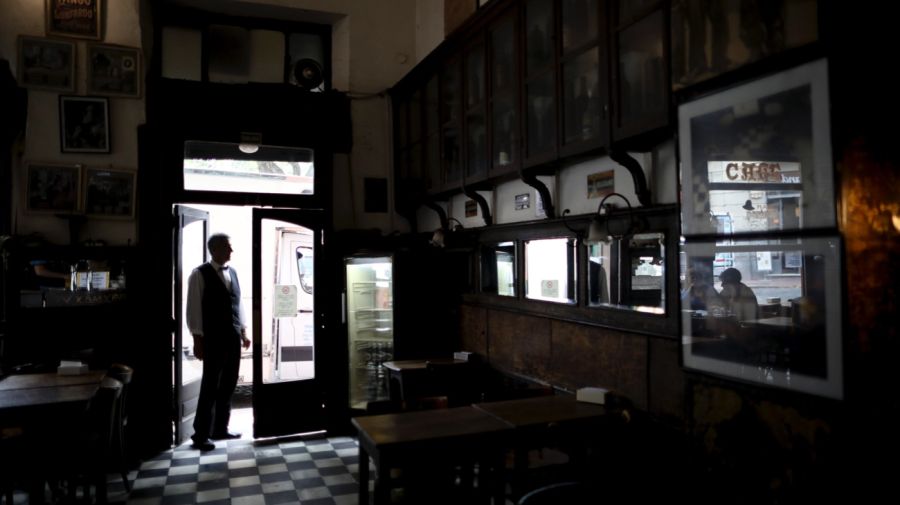
–AP/TIMES
related news
by AP/Natacha Pisarenko and Jabier Corbalan


























Comments